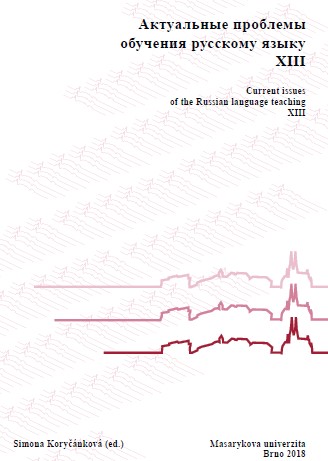СПЕЦИФИКА РУССКОЯЗЫЧНЫХ ГЕЙМИФИЦИРОВАННЫХ СИСТЕМ: КУЛЬТУРОЛОГИЧЕСКИЙ АСПЕКТ
SPECIFICITY OF RUSSIAN-LANGUAGE GAMING SYSTEMS: CULTUROLOGICAL ASPECT
Author(s): Victoria Aleksandrovna Polyakova
Subject(s): Foreign languages learning, Eastern Slavic Languages, Pedagogy
Published by: Masarykova univerzita nakladatelství
Keywords: Gamification; mythology; learning gaming systems; types of players; narrative; Hero's way;
Summary/Abstract: The design of gaming learning systems is becoming a common phenomenon in modern pedagogical practice. The motivating effect of the use of gaming tools in education is recognized by many researchers. Geomification is successfully used in teaching children and adults. The classical approach to the development of gaming systems is based on the theory of narrative, which is built as the path of the Hero in the works of K.-G. Young, D. Campbell and other scientists. This concept defines the existing typologies of "players". R. Bartle distinguishes the psychotypes of players: Achivers, Killers, Explorers, Socializes. There are also classifications that take into account borderline types. Our experience in the design of gaming training systems indicates a lack of typologies of "players" for the Russian environment. So, there are grounds for singling out a hero who does not take any active action. Such heroes exist in Russian fairy tales (for example, Emelya) or in Russian classical literature (for example, Oblomov), but this type is not reduced to a primitive desire to get something for nothing ("for free"). Such a character has a deep, religious meaning. The hero of the Western (eudemonic) consciousness hopes exclusively for his own strength, is active, is in a state of constant tension, even struggle, and the "Russian" hero is contemplative, he is open to the world, ready to accept his help. The rejection of the "self", the trust in the higher powers (Providence, Fate, God) are characteristic features of the Russian soteriological consciousness. They should be taken into account in the practice of developing training gaming systems in order to preserve national self-identification, especially in children's and youth audiences.
Book: Актуальные проблемы обучения русскому языку XIII
- Page Range: 186-194
- Page Count: 8
- Publication Year: 2018
- Language: Russian
- Content File-PDF

